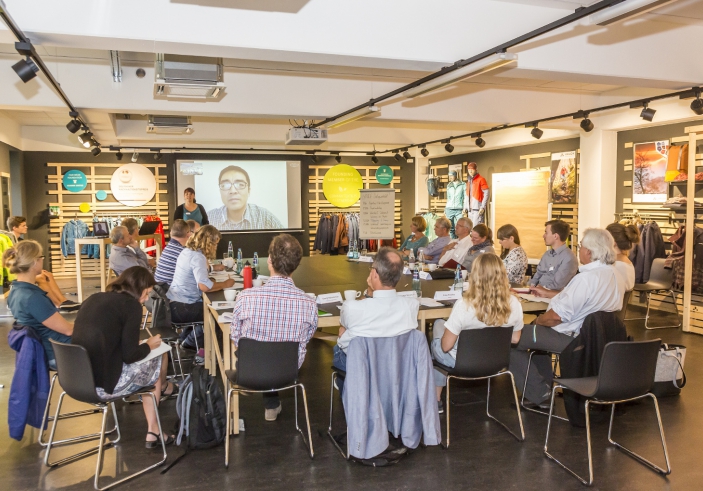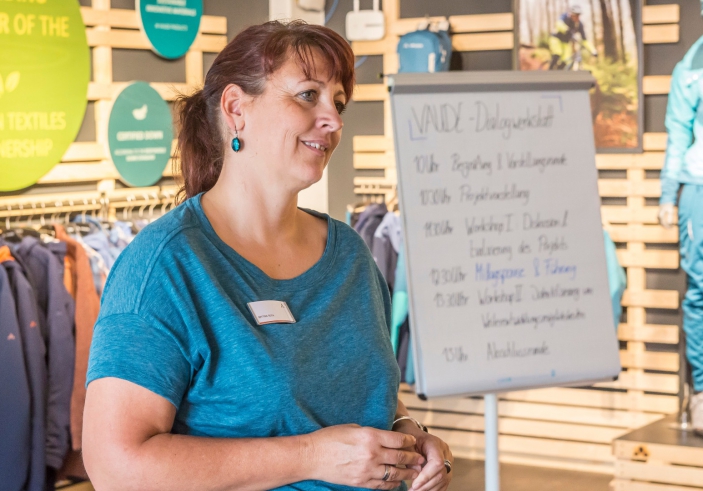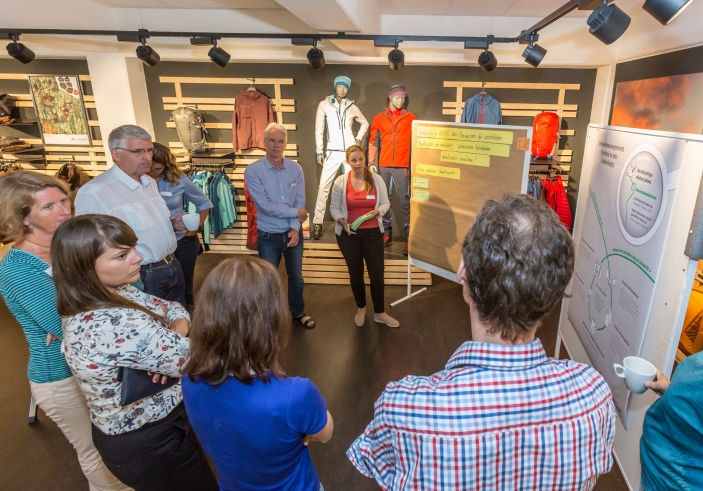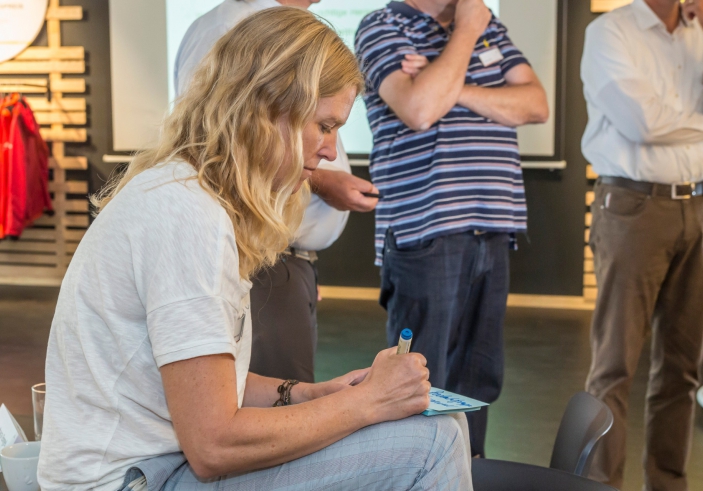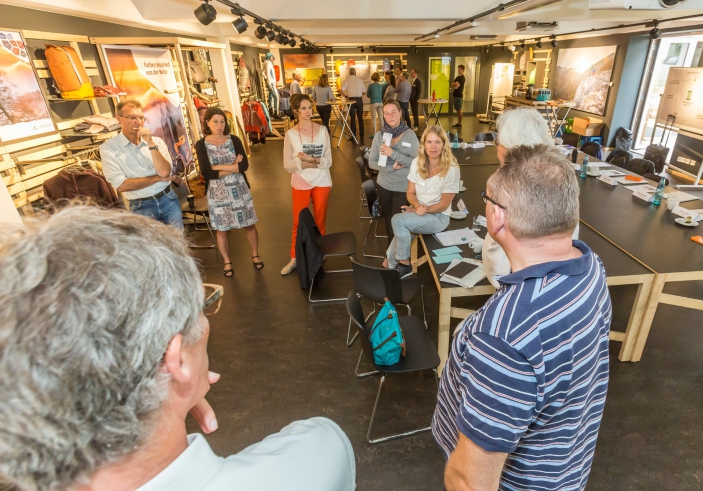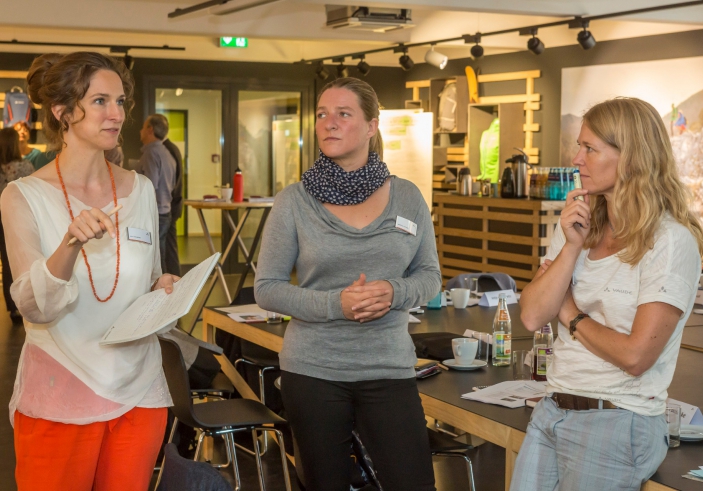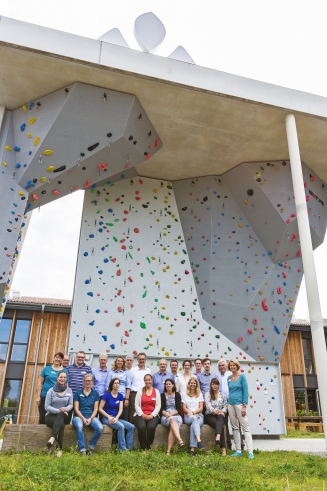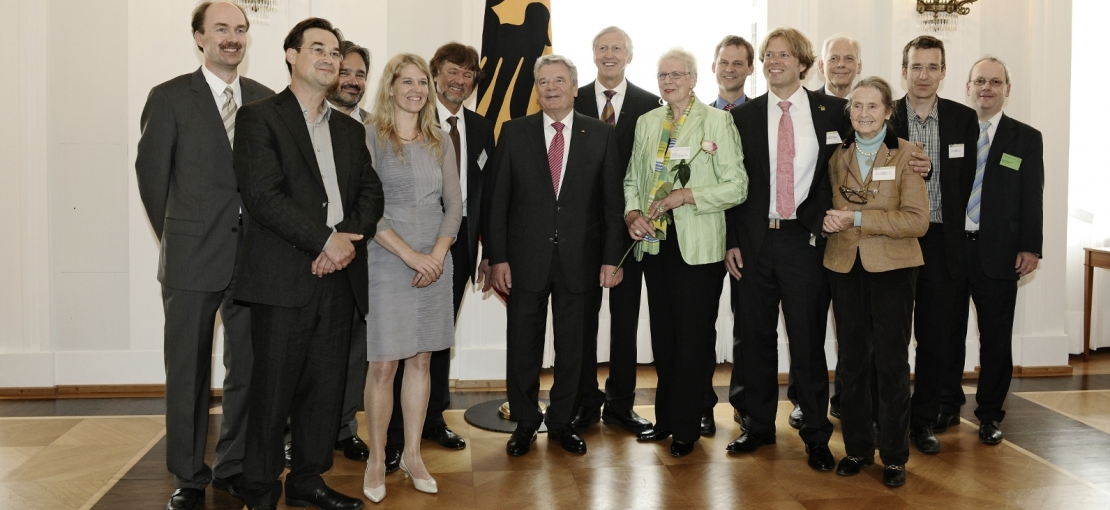
In constructive and active dialog
Working together to find the best solutions
We at VAUDE are open and interested in partner-based dialog with our stakeholders. We believe that by working together, we can make a bigger difference than working alone. Therefore, we address important issues and concerns in dialogs with our stakeholders.

»We want to use active dialog with our stakeholders in order to learn and actively involve them in the value-oriented community of VAUDE.«
We have drawn valuable insights about how we can improve our company from discussions with these stakeholders – an example:
Four Paws is working to eliminate the practices of live-plucking down and force-feeding geese. VAUDE has made a clear commitment: we use only down from slaughtered animals.
Triggered by the campaign, we found out that we could not guarantee 100% control over the conditions. We have therefore commissioned an independent organization with auditing our entire supply chain for down. See also "Lightweight heat storage - wonder of nature".
Want to know whom we’re talking with and what structures for dialog we have? Then read further...
Exchanges and further development with internal stakeholders
- We discuss strategic issues and planning with our management team in quarterly meetings.
- We survey our employees regularly in a variety of formats – more at "Satisfied employees are motivated".
- Once a year we organize an interactive company event during which we learn about and discuss current issues at VAUDE.
- In 2016 we selected an employee representative committee. Five elected employees and now an active liaison between employees and the management and discuss issues on an as-needed basis.
- Together with our employees, we are continuing to develop our organization. Restructuring doesn’t take place from the top down, but with the involvement of those affected. More at "Culture of trust".
- For 2017 we are planning an interactive workshop with interested employees on the development of our personnel strategy.
- Twice a year a strategic exchange with shareholders during the shareholder meeting takes place – more at “Antje von Dewitz at the summit”.
Interactive dialog with retailers
In 2016 we provided training on sustainability issues for 123 salespeople at our Green Shape Campus and discussed sustainability management at VAUDE. The results of these discussions were incorporated in the company through our sustainability team.
Green Shape Campus topics:
Sustainable products and their significance for retail trade
- Complex products, global supply chain
- Green materials and technologies such as recycled materials, fluorocarbon-free DWR, down
- Good working conditions in Asia – what’s involved?
- The Fair Wear Foundation and the principle of shared responsibility
- The bluesign® system
- Climate change and climate protection – what does it have to do with us... and how do we communicate this to our customers?
VAUDE – the environmentally friendly outdoor outfitter
- The “green thread” at VAUDE: sustainability as a business model
- VAUDE Green Shape: eco-friendly, functional products made from sustainable materials
- Quality with system and labor
- Durability of VAUDE products: product design, maintenance and care, 2nd hand and repair services
- Made in Germany: the VAUDE Manufaktur product facility
Dialog Workshop
- How can we successfully and authentically communicate the issue of sustainability in stores?
- How do you value the sustainability management at VAUDE and what expectations do you have regarding the issue at VAUDE?
In 2016 we also organized two sustainability breakfasts with retailers. Together we worked on the issue of how we can successfully and authentically communicate sustainability issues in retail stores. The essential input to come out of this dialog was incorporated as inspiration in our sustainability communications.
A direct link with consumers
Feedback on the Sustainability Report
We have surveyed the readers of our report (report year 2013, 2014, 2015) three times now. We have incorporated their insights into this report (report year 2016).
We could incorporate a total of 50 complete surveys. About 96% of the respondents evaluated our sustainability report as good or very good.
How do you like our sustainability report?
Create your own infographicsWhich topics are most interesting for you?
Create your own infographicsYour assessment of the design elements of our report
Create your own infographicsRespondents made the following suggestions for improvement:
- shorter texts
- more graphics and videos
- clearer structure and organization
We took this into consideration when preparing this report.
Voice of Consumer
In 2016, we also launched the "Voice of Consumer" at VAUDE. The goal of the project is to systematize opportunities to hear from consumers and to identify possible fields of action. By listening to what they have to say, we want to learn more about their needs and desires. We also welcome feedback on how to optimize our products. Read more at Customer satisfaction as the highest goal.
In 2016, we carried out an internal survey in all relevant departments and defined fields of action. We will begin implementing the results in 2017.
E-mail and telephone available for all
You can contact VAUDE directly by e-mail or by phone. The telephone number is: + 49 (0) 7542 5306-0.
If any questions, uncertainties or complaints arise here or in the stores that can’t be answered immediately, the issue will be forwarded to the VAUDE CSR team and then directed to an expert at VAUDE who will either answer directly or give the information back to the original sales representative to answer.
Dialog on equal footing with producers and suppliers
In the supply chain, we have so far only established systematic findings procedure for social issues - read more about the "Findings Procedure". Environmental issues can also be addressed through this channel, but the awareness of employees in the supply chain has so far not been very pronounced.
We still need to take action in this area: in the supply chain, the awareness of both the management and the employees of the individual companies on environmental issues is of paramount importance. For us, it would be valuable and helpful to directly identify possible complaints from the manufacturing companies of local residents, employees of companies or even NGOs.
In a pilot project, we are currently implementing an environmental management system at various suppliers. Suppliers are also trained on these subjects within the scope of the "Environmental Stewardship Program".
Constructive dialog with experts, politicians, banks and initiatives
- Over the past few years, we have established a strong network of non-governmental organizations (NGOs) and initiatives with which we maintain a lively exchange. For example with Greenpeace on the topic of chemical-free clothing. Of course, this doesn’t protect us from being criticized publicly. While this is not particularly enjoyable, most NGOs have legitimate concerns. We try to sit down and jointly explore where VAUDE should start in order to achieve improvements. We achieved a great milestone with the VAUDE Greenpeace Detox Commitment 2016.
- In 2016, we organized a Dialogue Workshop with representatives from our environmental stakeholder groups on environmental management in the supply chain and evaluated our pilot project with the experts. Representatives of the Federal Ministry for the Environment, the Federal Ministry for Economic Cooperation and Development (BMZ), Deutsche Investitions- und Entwicklungsgesellschaft (DEG), the European Outdoor Group and the Federation of German Sports Goods Industry (BSI) were all included. The results flow into the continued development of the project – more at "Suppliers as partners".

»This project precisely identifies sticking points in the supply chain: building awareness and competence in the Far East. Together, we should tackle this issue in the industry. VAUDE deserves great credit for being a pioneer in this issue.«
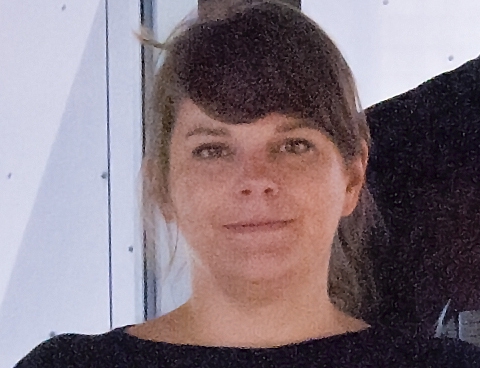
»We believe that the combination of knowledge transfer and awareness of environmental and sustainability issues are instrumental for improving working conditions in one of the largest and most important industries in developing countries. We are pleased to be supporting VAUDE in this pilot project.«
- VAUDE's management board meets with the Tettnanger Municipal Council annually to talk about VAUDE’s influence in the region – see "Creating value through commitment".
- The management board meets regularly with VAUDE’s banks to discuss strategic issues.
- We also exchange views with external stakeholders on a political level and in numerous initiatives. We actively participate in the debate – more at "Involvement on a political level" and "Stronger together". Our commitment to the Partnership for Sustainable Textiles is particularly important to us – read more at "VAUDE – founding member of the Partnership for Sustainable Textiles".
Comprehensive stakeholder analysis as a basis for dialog
We prepared a comprehensive stakeholder analysis for the preparation of our first GRI Report 2013. An interdisciplinary team with members from other companies in the industry identified our stakeholder groups, their key concerns and how they are included – "Who are our stakeholders?".
| GRI: | G4-25 |
| GRI: | G4-26 |
| GRI: | G4-27 |
| GRI: | G4-EN34 |
| GRI: | G4-DMA Environmental Grievance Mechanisms |

